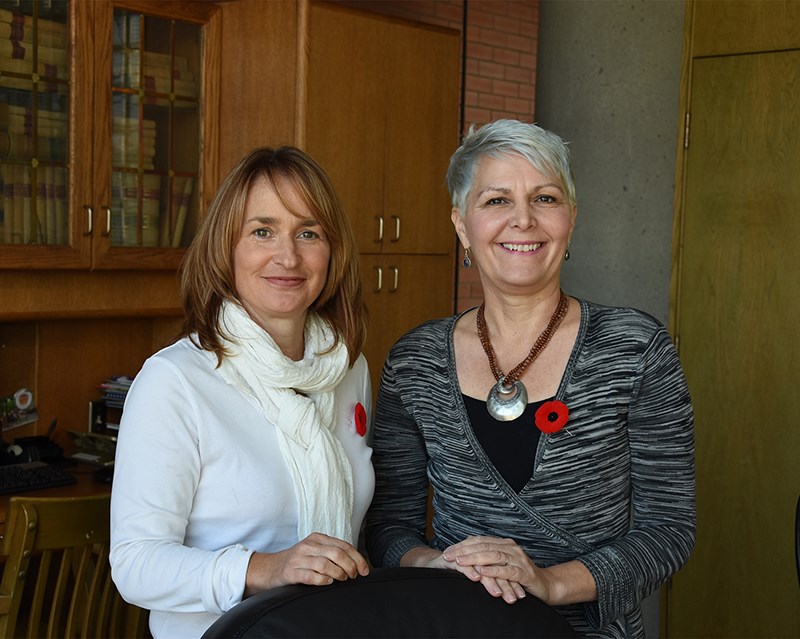Encouraging more women to enter politics and helping them overcome challenges will be the topic of discussion next Wednesday, Nov. 22, when Metro Conversations comes to the Tri-Cities.
The discussion series tackling important municipal issues will address women in politics less than a year before the next civic elections.
It’s important for women and men to talk about ways to include women in municipal politics because their voices need to be heard, says Kiersten Duncan, a Maple Ridge city councillor who is organizing the event in Port Coquitlam called Nasty Women: Gender in Politics.
“It’s a great opportunity for someone interested in running to learn about some of the challenges they may face. It can be really overwhelming when you run for the first time and you have these barriers,” said the first-term councillor.
Answering “incredibly sexist questions” as to why she wasn’t spending more time with her family and ”the assumption that I am the secretary” was frustrating, said Duncan, who also said she believes some voters were “focused on the old-fashioned belief that women should be working in the home” instead of being involved in politics.
Changing those attitudes is the main reason she wanted a discussion focusing on the topic as part of Metro Conversations, which was initiated by a group of younger councillors who met following a Union of BC Municipalities meeting a year ago and have held similar events in three other municipalities focusing on transportation, renovictions and the future of the single-family home.
Two Tri-City councillors say they welcome the discussion of women in politics close to home.
Coquitlam's Bonita Zarrillo and Port Coquitlam's Laura Dupont will be among the panelists, that also includes Port Coquitlam Coun. Glenn Pollock and Mayor Nicole Read of Maple Ridge, and say more women should run for political office to ensure equality in decision making.
“This is an exciting time for women’s voices to be heard,” Zarrillo said.
Helping women achieve their goals are various mentorship groups, such as Equal Voice, a national organization dedicated to electing more women to political office; and the Canadian Women Voters Congress, which offers a campaign school.
Still, there are challenges, the two say.
Zarrillo said women are encouraged to ask questions instead of making assertive statements, to avoid appearing overly strident, while Dupont said women are told to wear powerful colours and their outfits are sometimes scrutinized. Women who prefer to work collaboratively instead of adversarially don’t always get respect, Dupont said, noting, “Being more collaborative and more thoughtful is not seen as valuable.”
Still, they say it’s worth the effort to overcome challenges to get a seat at the table because important issues are dealt with and individual politicians can make a difference.
“I’d love to see more women come forward to assert themselves and their capabilities,” Zarrillo said.
Women politicians may also benefit from proposed changes in municipal campaign financing, such as the banning of union and corporate donations, and new contribution caps, said Zarrillo, especially if they have large networks of people willing to hand over $20 apiece and are adept at social media and can use it to wield influence.
But success in politics still comes down to meeting people face to face, no matter your gender, the two say, and pounding the pavement still matters.
“It makes us work a little bit harder and knock on a few more doors,” Zarrillo said.
• Metro Conversations on women in politics takes place Wednesday, Nov. 22 from 6:30 to 8 p.m. at the Gathering Place, 200-2253 Leigh Sq., Port Coquitlam. Admission is free; register here. This event is presented in partnership with SFU Public Square.



